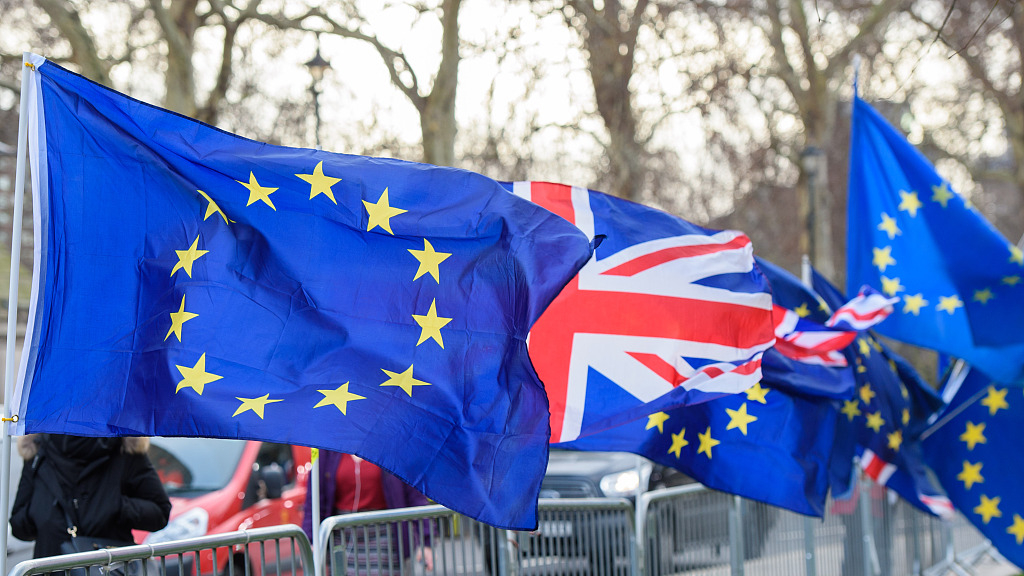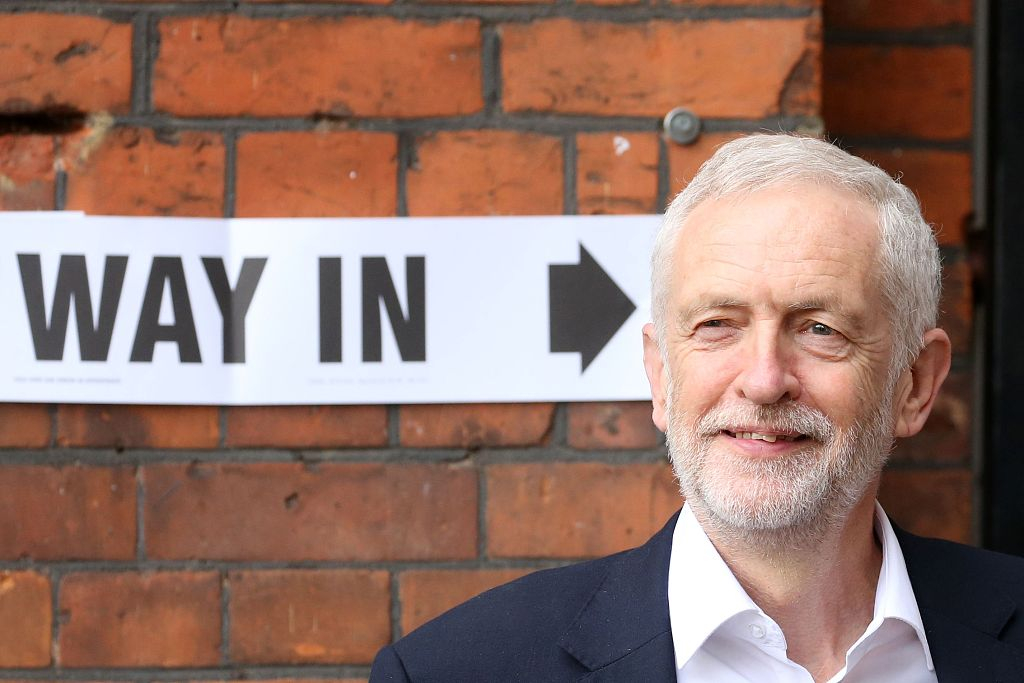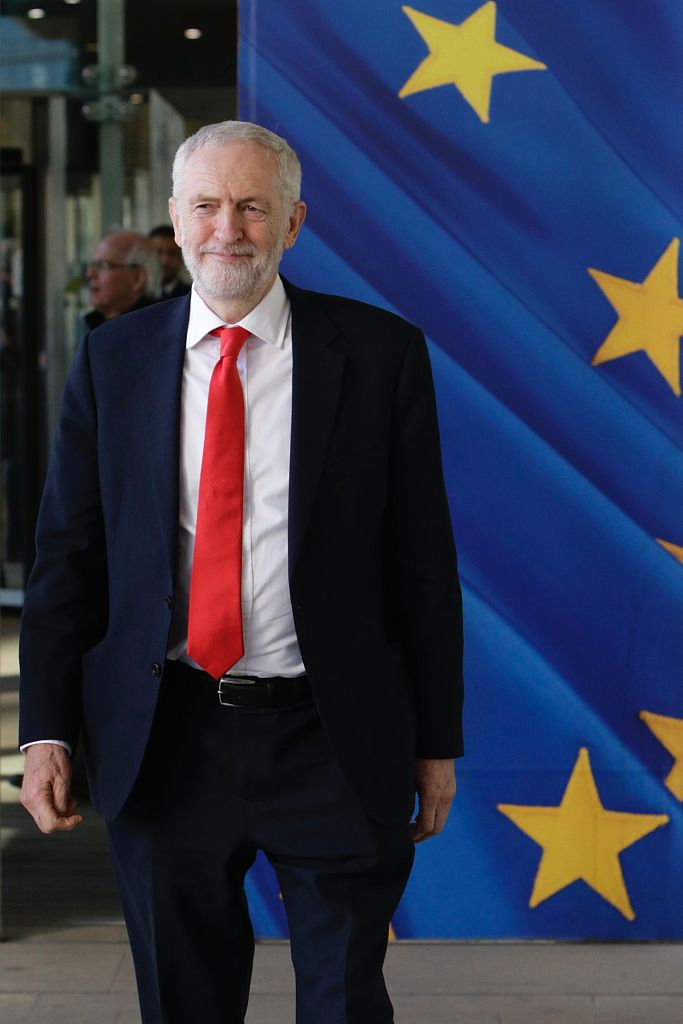

Editor's Note: Chris Deacon is a postgraduate researcher in politics and international relations at the University of London and previously worked as an international commercial lawyer. The article reflects the author's opinions, and not necessarily the views of CGTN.
In what has been a markedly drawn-out process, senior figures within the UK's main opposition Labour Party are still calling for the party to change its policy on the Brexit issue. These calls are now louder than ever, and Labour appears on the verge of officially backing the holding a second referendum on Brexit and remaining in the EU.
Labour's policy has, up to now, been deliberately ambiguous. The party had advocated keeping the option of a second referendum "on the table," but only conceded its necessity if it was unable to win the more immediate goal of a general election. This position never quite made sense as one would assume that winning a general election was a necessary prerequisite for the implementation of any of Labour's policies, given that they are currently in opposition.
At the same time, Labour leader Jeremy Corbyn refused to condemn Brexit in general terms, focusing only on what he referred to as a "damaging Tory Brexit" that the government was trying to implement, suggesting that other forms of Brexit would be supported by his party. Such a "Labour Brexit," it appeared, did not require approval via a public referendum, whereas the Conservative Party's version did.

UK's Labour party leader Jeremy Corbyn leaves after voting in the European Parliament elections in London, UK, May 23, 2019. /VCG Photo
This policy appeared to shift somewhat after Labour's poor performance in May's European elections, where the Liberal Democrat party (itself fully supporting a "referendum and remain" position) outpolled the main opposition by a significant margin. Most put this down to the public becoming fed up with Labour's ambiguity on the issue, with the party losing a disproportionate number of votes to the Lib Dems from its large Remain-supporting base.
At this point, Corbyn shifted position to support a "public vote" on any and all Brexit deals that are put forward – i.e. no implementation of Brexit without confirmation from the public. This phrasing, however, is still deceptive in that a "public vote" could also refer to a general election. In this way, Corbyn is usually careful not to refer to a "referendum" specifically.
Perhaps more importantly, though, if there were to be a second referendum on Brexit, Corbyn has also refused to confirm which side he – and his Labour Party – would support. Corbyn himself has long been a Eurosceptic and put in only a lackluster performance in support of the Remain campaign at the first referendum. Some even believe he voted to leave the European Union, although this has been denied.
Now, however, very senior figures within the party – including Shadow Chancellor John McDonnell – are calling for an immediate shift to an unequivocal "referendum and remain" position. That is, calling for the party to support not just the holding of a referendum but also committing to support remaining in the European Union in such a referendum.
Such calls have existed within the party for some time now – including prominent Members of Parliament – however, McDonnell is almost certainly the most senior figure to publicly advocate an immediate shift to this position. On Sunday on the BBC's Andrew Marr Show, McDonnell stated that, although he wanted this shift to occur immediately, he understood that the "much wiser" Jeremy Corbyn was attempting to "build consensus" on the issue before making the move.

UK's Labour party leader Jeremy Corbyn arrives to speak to the press after meeting with the EU Brexit negotiator at the European Commission headquarters in Brussels, Belgium, March 21, 2019. /VCG Photo
Many will still be skeptical of these words. Labour is in something of a "boy that cried wolf" position in that it has appeared to be on the verge of supporting a second referendum and remaining in the European Union on multiple occasions, only to then re-affirm a more ambiguous position which could support some form of Brexit in certain circumstances.
Having said this, McDonnell – and others now advocating this position such as Diane Abbott – are key allies of Jeremy Corbyn. It would be odd for them to work against him in public in this way if they did not believe this was the position to which he was moving. Labour, therefore, seems closer than ever to supporting this policy.
While still in opposition, a general election in the coming months seems very likely. If Labour were to advocate a "referendum and remain" position in such an election, it currently seems very likely that they could win, given that the Conservatives – if they have not yet implemented Brexit – will lose many votes to the Brexit Party, leaving the door open to Labour in many marginal constituencies.
At the very least, a "Remain alliance" of parties in the center and on the left of the political spectrum gaining a majority in the UK Parliament at the next election seems very possible. Such an eventuality could well yet see Brexit being cancelled, if Labour finally makes this shift.
(If you want to contribute and have specific expertise, please contact us at opinions@cgtn.com)

Copyright © 2018 CGTN. Beijing ICP prepared NO.16065310-3
Copyright © 2018 CGTN. Beijing ICP prepared NO.16065310-3